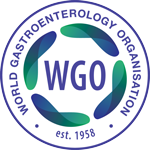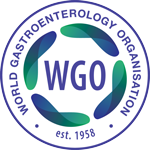 |
Tarkan Karakan, MD
Gazi University
Department of Gastroenterology
Ankara, Turkey
|
There is a close relationship between the human host and the intestinal microbiota, which is an assortment of microorganisms protecting the intestine against colonization by exogenous pathogens. Recent advances in culture-independent techniques, including next generation sequencing and metagenomics, have improved our overall understanding of the gut microbiota as well as the importance of its interaction with the mucosal immune system in the pathogenesis of inflammatory bowel disease (IBD) 1. Antibiotics are able to change the microbiota composition in the gut by decreasing microbiome diversity as well as negatively affecting the overall metabolic status of the gut microbiome 2. This change is thought to have long-lasting impact on immune tolerance and sensitivity to pathogens, thus favoring the onset of IBD. Recent literature revealed an increased risk of IBD in adults related to childhood exposure to antibiotics in a dose-dependent manner. The exposure to any kind of antibiotics increased the risk of developing Crohn’s disease (CD) (OR 1.7, 95% CI 1.4–2.2), but not ulcerative colitis (UC) 3-5.
IBD patients have lower microbial diversity and Firmicutes and Bacteroidetes phyla 6. Studies profiling the gut microbiota in patients with IBD compared with controls have consistently shown changes in microbiota composition as well as reduction in overall biodiversity 7. Disease state is associated with a drop in abundance of several taxa. Faecalibacterum prausnitizi is decreased in ileal CD and it is increased during recovery phase of UC 8. Other studies showed decreased numbers of adherent-invasive E. coli, Enterobacteria, Fusobacteria, Mycobacterium avium paratuberculosis, and Clostridium difficile. Moreover, Bacteroides, Clostridia, Bifidobacteria, and Ruminococcaceae are increased in IBD patients. Metagenomic studies revealed more stability of functionality than microbiota at phylogenetic level 9. One study identified only nine bacterial classes associated with UC patients compared with controls, but 21 differences in functional and metabolic pathways, with similar findings for CD patients 10. Gut microbiota in IBD is also shows spatial variations from proximal to distal parts. By systematically sampling both mucosa and lumen associated microbiota, Lavella et al found significant differences in both UC and control patients.
Few studies investigated the role of fungal signatures in IBD patients. Two decades ago, S. cerevisia mannan (ASCA) was found in the sera of CD patients. Fungi and C. albicans are particularly profound in CD patients, as in first-degree healthy relatives of them. Pediatric IBD is associated with reduced diversity in both fungal and bacterial gut microbiota. Specific Candida taxa were found to be increased in abundance in the IBD samples 11.
Microbiota also has a predictive value for disease recurrence in IBD. Presence of R. gnavus, B. vulgatus, and C. perfringens and absence of Blautia and Roseburia in fecal samples of patients with UC before surgery is associated with a higher risk of pouchitis 12. Early endoscopic Crohn’s recurrence was associated with high counts of E. coli, Bacteroides, and Fusobacteria. A lower proportion of F. prausnitzii on resected ileal Crohn’s mucosa was associated with endoscopic recurrence at six months (P = 0.03), suggesting that there may be a microbial signature, detectable at the time of resection, that can inform disease behavior, and the risk of recurrence postoperatively.
The role of diet in shaping the gut microbiota is widely recognized, and several recent reviews provide a comprehensive treatment of the subject. Microbiota is modulated through diet and nutritional habits even if, as the composition of gut microbiota seems to be rather stable over long periods of adulthood, its richness may be individually different. Reduced richness of gut microbiota has been found in patients with IBD. However, until recently, not many studies have broadly and systematically considered the association between habitual diet and gut microbiota. Some populations eat differently because they have different access to foods, and this can determine significant differences in the taxonomic composition of their gut microbiota, distinguishing agrarian and Western diets. Specific compositional patterns of the gut microbiota have also been associated with habitual diet, clearly linking different compositions of the microbiota with animal fat and protein-based diets versus vegetable-based diets. A recent study investigated the role of the Mediterranean Diet on gut microbiota. In this study, 153 individuals habitually following omnivore, vegetarian, or vegan diets were included. They detected significant associations between consumption of vegetable-based diets and increased levels of fecal short-chain fatty acids, Prevotella, and some fiber-degrading Firmicutes, whose role in human gut warrants further research. Conversely, they detected higher urinary trimethylamine oxide levels in individuals with lower adherence to the Mediterranean Diet.
Diet influences microbiota, but gut microbiota richness also changes the response to diet. Studies investigating the gut microbiota (gene) richness showed differential response to calorie-restricted diets between these two populations (high-gene versus low-gene content). In particular, the two groups differed in terms of short-chain fatty acid (SCFA) production and mucus degradation potential, hydrogen/methane/hydrogen sulphide production potential, oxidative stress management potential, and Campylobacter/Shigella abundance, suggesting that low gene content individuals harbor inflammation-associated microbiota. In another study, the impact of an energy-restricted high-protein diet on the gut microbiome was investigated. After consuming an energy-restricted diet, gene richness significantly increased in the low gene content group, while in the high gene content group no significant change in gene richness or diversity was found over the course of the study. Increases in gene richness were significantly associated with decreases in total fat mass, hip circumference, total cholesterol, and LDL cholesterol, supporting the hypothesis that correcting microbial richness may result in improvements in metabolic derangements 13.
There are specific diets which are popular in weight reduction and irritable bowel syndrome (IBS). However, there are limited data on diets for IBD for reducing inflammation in the gut 14. Low fiber diet is thought to reduce inflammation via reduction of passage of stool antigens to inflamed bowel as well as reduce the bulk and frequency of stools. Patients have traditionally been instructed to reduce fiber while in an active flare or with intestinal strictures. Limited studies do not clarify current practice of fiber restriction during active flares or in the presence of CD stenosis. There is also no data in UC. As for high-fiber diets, the inclusion of high-fiber foods in the diet would promote production of short-chain fatty acids to modulate intestinal inflammation. The studies failed to demonstrate a benefit in clinical outcomes in active CD. To our knowledge, there are no studies of the use of the diet in quiescent CD. Although the studies showed more promising results in UC than with CD, the overall evidence is weak. Vegetarian diet is another popular diet. One study found possible efficacy as maintenance therapy, but the study was limited by its small sample size and lack of endoscopic or histologic endpoints. There are very few studies at this time to support its use. Lactose-free diet is frequently advised by physicians for IBD patients, especially in the active phase. However, in lactose malabsorption, there is no need to completely restrict lactose; instead, reduce lactose intake as tolerated. IBD patients may report lactose intolerance, but this may not necessarily be due to lactose malabsorption. There are so far no studies that have evaluated the effect of lactose on IBD activity. Specific carbohydrate diet (SCD) is novel diet mainly in studies in patients with IBS. The logic behind eliminating poorly digested carbohydrates is that bacterial fermentation might result in gut inflammation. Few small uncontrolled studies in CD showed some improvement in symptoms but with inconsistent changes in inflammatory markers. There is no study in UC. Low-FODMAP diet is also studied in IBS. A reduced intake of fermentable carbohydrates (excess fructose, lactose, fructans, galactans, and polyols) in the diet would help reduce symptoms, similar to its effects on IBS. There is evidence to suggest that the diet may help reduce functional symptoms in CD. Studies are needed to assess its effect on intestinal inflammation. There is no study in UC. Paleolithic diet was practiced by hunter-gatherer societies of the Paleolithic era and may reduce the risk of chronic diseases that were uncommon in primitive societies. There are websites and blogs now promoting the diet for the treatment of IBD. However, there are no studies in CD or UC. Gluten-free diet is the elimination of all gluten containing foods. It is suggested that it would help to reduce intestinal inflammation and symptoms in non-celiac IBD, as seen in celiac disease. There currently limited data in CD and UC patients and it is premature to advice in clinical practice 14.
In conclusion, gut microbiota is the next frontier in the diagnosis, prophylaxis, and treatment of IBD. Diet and antibiotic exposure are the main elements of Western life style. Developing countries might keep some of their beneficial cultural lifestyle components (diet, environmental factors, etc.) during “Westernization” to keep their healthy microbiome and minimize the risk of IBD-related disorders.
References
- Bamias G, Pizarro TT, Cominelli F. Pathway-based approaches to the treatment of inflammatory bowel disease. Transl Res. 2015 pii: S1931-5244(15)00300-X.
- Perez-Cobas AE., Gosalbes MJ., Friedrichs A., Knecht H., Artacho A., Eismann K., et al. Gut microbiota disturbance during antibiotic therapy: a multi-omic approach. Gut 2013;62(11):1591–601.
- Ungaro R., Bernstein CN., Gearry R., Hviid A., Kolho K-L., Kronman MP., et al. Antibiotics associated with increased risk of new-onset Crohn’s disease but not ulcerative colitis: a meta-analysis. Am J Gastroenterol 2014;109(11):1728–38.
- Hviid A., Svanström H., Frisch M. Antibiotic use and inflammatory bowel diseases in childhood. Gut 2011;60(1):49–54.
- Virta L., Auvinen A., Helenius H., Huovinen P., Kolho KL. Association of repeated exposure to antibiotics with the development of pediatric crohn’s disease - A nationwide, register-based Finnish case-control study. Am J Epidemiol 2012;175(8):775–84.
- Goto Y, Kurashima Y, Kiyono H. The gut microbiota and inflammatory bowel disease. Curr Opin Rheumatol. 2015;27:388-96. doi: 10.1097/ BOR.0000000000000192.
- Frank DN St, Amand AL, Feldman RA, et al. Molecularphylogenetic characterization of microbial community imbalances in human inflammatory bowel diseases. Proc Natl Acad Sci USA. 2007;104:13780–13785.
- Varela E, Manichanh C, Gallart M, Torrejón A, Borruel N, Casellas F, Guarner F, Antolin M. Colonisation by Faecalibacterium prausnitzii and maintenance of clinical remission in patients with ulcerative colitis. Aliment Pharmacol Ther. 2013;38:151-61. doi: 10.1111/apt.12365.
- Kostic AD, Xavier RJ, Gevers D. The microbiome in inflammatory bowel disease: current status and the future ahead. Gastroenterology. 2014;146:1489–99.
- Morgan XC, Tickle TL, Sokol H, et al. Dysfunction of the intestinal microbiome in inflammatory bowel disease and treatment. Genome Biol. 2012;13:R79.
- Chehoud C, Albenberg LG, Judge C, Hoffmann C, Grunberg S, Bittinger K, Baldassano RN, Lewis JD, Bushman FD, Wu GD. Fungal Signature in the Gut Microbiota of Pediatric Patients With Inflammatory Bowel Disease. Inflamm Bowel Dis. 2015;21:1948-56. doi: 10.1097/MIB.0000000000000454.
- Machiels K, Sabino J, Vandermosten L, Joossens M, Arijs I, de Bruyn M, Eeckhaut V, Van Assche G, Ferrante M, Verhaegen J, Van Steen K, Van Immerseel F, Huys G, Verbeke K, Wolthuis A, de Buck Van Overstraeten A, D’Hoore A, Rutgeerts P, Vermeire S. Specific members of the predominant gut microbiota predict pouchitis following colectomy and IPAA in UC. Gut. 2015: 30. pii: gutjnl-2015-309398. doi: 10.1136/gutjnl-2015-309398.
- Putignani L, Del Chierico F, Vernocchi P, Cicala M, Cucchiara S, Dallapiccola B; Dysbiotrack Study Group. Gut Microbiota Dysbiosis as Risk and Premorbid Factors of IBD and IBS Along the Childhood-Adulthood Transition. Inflamm Bowel Dis. 2015 Oct 21. [Epub ahead of print] PubMed PMID: 26588090.
- Shah ND, Parian AM, Mullin GE, Limketkai BN. Oral Diets and Nutrition Support for Inflammatory Bowel Disease: What Is the Evidence? Nutr Clin Pract. 2015;30: 462-73.


